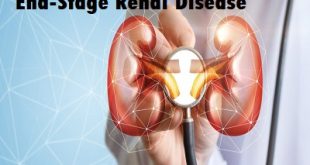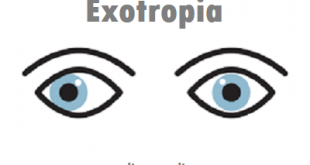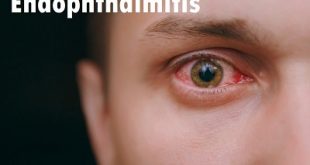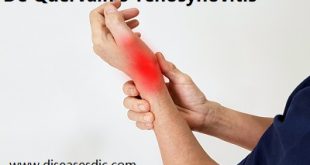Definition
Erectile dysfunction is defined as the inability to achieve and maintain a penile erection adequate for satisfactory sexual intercourse. You may have ED if you
- can get an erection sometimes, though not every time
- can get an erection, yet it does not last long enough for sex
- are unable to get an erection at all ED is sometimes called impotence;
How does an erection occur?
An erection occurs when blood flow into the penis increases, making the penis larger and firmer. Hormones, blood vessels, nerves, and muscles all work together to cause an erection. When your brain senses a sexual urge, it starts an erection by sending nerve signals to the penis. Touch may cause this urge. Other triggers may be things you see or hear, or sexual images or thoughts.
The nerve signals cause the muscles in the penis to relax and let blood flow into the spongy tissue in the penis. Blood collects in this tissue like water filling a sponge. The penis becomes larger and firmer, like a blown-up balloon. The veins then shut off to keep blood from flowing out. An erection requires healthy blood vessels. After orgasm or when the man is no longer aroused, the veins open up and blood flows back into the body.
History
The term impotence has traditionally been used to describe the inability of the male to attain and maintain an erection adequate for sexual intercourse. Although the term has been used for centuries, as will be described in this article, it generates much confusion and has been replaced by ‘erectile dysfunction’ since 1992.
Many people believe that impotence is a modern curse to man. In 1940, Stekel [2] said that ‘Impotence is a disorder associated with modern civilization’. However, man’s preoccupation with potency, or the lack thereof, has been present through the ages. The word impotence is derived from the Latin word impotencia, which literally translated means lack of power. The term was first used by Thomas Hoccleve (1370–1454) in 1420, in his 5500-verse poem, ‘De Regimine Principum’ (the Government of Princes).
In the 1800’s sheep testis extract was injected as a source of testosterone to correct impotence. This was the standard until testosterone was purified in the 1940s. In the United States in the 1920s and 1930s Dr. John R. Brinkley attempted to cure the condition using medication. He recommended expensive goat gland implants and “mercurochrome” injections along with operations by surgeon Serge Voronoff.
In the 1970’s surgeons started providing patients with inflatable penile implants. In 1960 Geddings Osbon invented a device which he called the “YED” or “youth equivalence device”. It is still being used today as the vacuum pump for erectile dysfunction.
All attempts to treat erectile dysfunction with medication failed till in 1983 British physiologist Giles Brindley, Ph.D. literally showed an American Urological Association audience the effect of phentolamine on inducing an erection. He had injected a non-specific vasodilator, an alpha-blocking agent in his own veins to cause corporal smooth muscle relaxation. This laid the path for the later development of oral agents that could lead to similar vasodilation and corporal smooth muscle relaxation in the penis leading to erection.
Treatment of erectile dysfunction was revolutionized with the discovery of sildenafil or Viagra. Pfizer employees Peter Dunn and Albert Wood were portrayed as the as the inventors of sildenafil, now known as Viagra. Terrett was named in the 1991 British patent for sildenafil as a heart medicine, and some experts consider him as the father of Viagra. Dunn and Wood however were responsible for bringing Viagra into its pill form.
Prevalence and incidence
Erectile dysfunction affects men of all races and in all parts of the world. Men are more likely to have ED as they get older. For example, ED occurs in
- About 12 percent of men younger than 60
- 22 percent of men age 60 to 69
- 30 percent of men age 70 or older
What causes erectile dysfunction?
Erectile dysfunction often has more than one cause. Many diseases can damage nerves, arteries, and muscles. Some can lead to ED, such as
- High blood pressure
- Diabetes, when your blood glucose, also called blood sugar, is too high
- Clogged arteries
- Heart and blood vessel disease
- Chronic kidney disease
- Multiple sclerosis, a disease that attacks the nerves
- Treatments for prostate cancer, including radiation, surgery to remove the prostate, and hormone treatments
- Injury to the penis, spinal cord, prostate, bladder, or pelvis
- Surgery for bladder cancer
- Peyronie’s disease, in which scar tissue, called a plaque, forms in the penis
- Unhealthy lifestyle choices, such as smoking
- Drinking too much alcohol and using illegal drugs
- Being overweight, and not exercising, can lead to ED
Mental health problems such as the following can also cause or worsen ED:
- Depression
- Fear of sexual failure
- Guilt
- Low self-esteem
- Stress
- Worry
Risk factors of erectile dysfunction
A variety of risk factors can contribute to erectile dysfunction. They include:
- Medical conditions, particularly diabetes or heart problems.
- Using tobacco, which restricts blood flow to veins and arteries. Over time tobacco use can cause chronic health problems that lead to erectile dysfunction.
- Being overweight, especially if you’re very overweight (obese).
- Certain medical treatments, such as prostate surgery or radiation treatment for cancer.
- Injuries, particularly if they damage the nerves that control erections.
- Medications, including antidepressants, antihistamines and medications to treat high blood pressure, pain or prostate cancer.
- Psychological conditions, such as stress, anxiety or depression.
- Drug and alcohol use, especially if you’re a long-term drug user or heavy drinker.
- Prolonged bicycling, which compress nerves and affect blood can flow to the penis leading to temporary erectile dysfunction.
What are the tests used to diagnose Erectile Dysfunction?
For many men, a physical exam and answering questions (medical history) are all that’s needed before a doctor is ready to recommend a treatment. If your doctor suspects that underlying problems may be involved, or you have chronic health problems, you may need further tests or you may need to see a specialist.
Tests for underlying problems may include:
- Physical exam. This may include careful examination of your penis and testicles and checking your nerves for feeling.
- Blood tests. A sample of your blood may be sent to a lab to check for signs of heart disease, diabetes, low testosterone levels and other health problems.
- Urine tests (urinalysis). Like blood tests, urine tests are used to look for signs of diabetes and other underlying health conditions.
- This test can check blood flow to your penis. It involves using a wand-like device (transducer) held over the blood vessels that supply the penis. It creates a video image to let your doctor see if you have blood flow problems. This test is sometimes done in combination with an injection of medications into the penis to determine if blood flow increases normally.
- Overnight erection test. Most men have erections during sleep without remembering them. This simple test involves wrapping special tape around your penis before you go to bed. If the tape is separated in the morning, your penis was erect at some time during the night. This indicates the cause is of your erectile dysfunction is most likely psychological and not physical.
- Injection Test. During an injection test, the doctor will inject a medicine into your penis to cause an erection. If the erection is not firm or does not last, it may mean you have a problem with blood flow. This test most often takes place in the doctor’s office.
Treating the cause of your erectile dysfunction
Lifestyle changes
For some men, the following lifestyle changes help:
- Quitting smoking
- Drinking less alcohol
- Increasing physical activity
- Stopping illegal drug use
Counseling
Counseling can help couples deal with the emotional effects of ED. Some couples find that counseling adds to the medical treatment by making their relationship stronger.
Medicine by oral
Your doctor may be able to prescribe a pill to treat ED. Common medicines include
- Sildenafil (Viagra)
- Vardenafil (Levitra, Staxyn)
- Tadalafil (Cialis)
- Avanafil (Stendra)
Vacuum Device
Another way to create an erection is to use a device with a specially designed vacuum tube. You put your penis into the tube, which is connected to a pump. As air is pumped out of the tube, blood flows into your penis and makes it larger and firmer. You then move a specially designed elastic ring from the end of the tube to the base of your penis to keep the blood from flowing back into your body. You may find that using a vacuum device requires some practice.
Vacuum device for penile erection
Surgery
If the other options fail, you may need surgery to treat ED.
Implanted devices. An urologist can place a device that fills with fluid or a device with bendable rods inside the penis to create an erection. Cylinders Penis Pump Scrotum Fluid One kind of implant uses two cylinders that fill with fluid like a balloon. Tubing connects the cylinders to a small ball that holds the fluid. You fill the cylinders by squeezing a small pump that the urologist places under the skin of the scrotum, in front of your testes. The pump causes fluid to flow into the two cylinders in your penis, making it hard. The fluid can make the penis slightly longer and wider.
Implant device
An implant that uses fluids instead of bendable rods leaves the penis in a more natural state when not in use. Implants that bend most often have two rods that the urologist places side by side in your penis during surgery. You use your hands to adjust the position of the rods to make your penis straight. Your penis does not get larger. After sex, you bend the rods down. Implanted devices do not affect the way sex feels or the ability to have an orgasm. Once you have an implanted device, you must use the device to have an erection every time.
Surgery to repair blood vessels.
Doctors treat some cases of ED with surgery to repair the blood vessels that carry blood to the penis. This type of surgery is more likely to work in men younger than 30.
Prevention of erectile dysfunction
The best way to prevent erectile dysfunction is to make healthy lifestyle choices and to manage any existing health conditions. For example:
- Work with your doctor to manage diabetes, heart disease or other chronic health conditions.
- See your doctor for regular checkups and medical screening tests.
- Stop smoking, limit or avoid alcohol, and don’t use illegal drugs.
- Exercise regularly.
- Take steps to reduce stress.
- Get help for anxiety, depression or other mental health concerns.
 Diseases Treatments Dictionary This is complete solution to read all diseases treatments Which covers Prevention, Causes, Symptoms, Medical Terms, Drugs, Prescription, Natural Remedies with cures and Treatments. Most of the common diseases were listed in names, split with categories.
Diseases Treatments Dictionary This is complete solution to read all diseases treatments Which covers Prevention, Causes, Symptoms, Medical Terms, Drugs, Prescription, Natural Remedies with cures and Treatments. Most of the common diseases were listed in names, split with categories.








Infact I’m a herbal practitioner and this has really help me out ,very very interesting .thanks so much for the education
it’s helpful
satisfied.
very educative
it’s really Good and educative.
Nice one!!
very interesting and educative
great article, I think even u can use clomiphene citrate tablets to increase testesteron level
Very educative but more emphasis be on precaution pls.
Great stuff…
I experienced Ed but Dr said that am ok, it mostly happens after taking soda or alcohol
should I not take soda for the rest of my life?
Consumption of numerous alcohol also affects your sex life. So it is better to stop taking alcohol to prevent further problems. But Please consult with good sexologist.
thanks for education ,but lhave a problem where can l get treatment?
Please consult a good sexologist to get treatment and also follow the preventive measure given in the post to escape from this problem.
Some times i have strong erection and i stay longer to satisfy my woman but most times i perform less than 3 mins or after one round i will loss erection. Help me out
please consult a sexologist to get better sex life.
what is the issues
Please read the complications part in the post for issues due to erectile dysfunction.
Are these medicines available on the market? (Viagra). Are they only accessed by a prescription by a Dr?
yes before having those drugs consult a doctor once.
please I have these rashes around the coat of my penis and I need help …please
consult a doctor to get the cure for this problem.
experiencing erecting dysfunction after I had spine surgery. even when it stands, sperm does not come and I don’t also feel d test of sex. please advise me on what to do. it’s heartbreaking.
Consult a doctor to get treatment.
I used to drink alcohol heavily but I have stopped it when I started feeling erectile dysfunction. Now my ED has continued to worsened by the dayI have had tests of blood sugar, HBP and all are negative so what’s likely going to be my problem?
Consult a good cardiologist to avoid serious effects in future.
I have high blood pressure and suffering from low erectile problems I don’t drink nor smoke I also have back acke can you please assist.
Take drugs such as Cialis, Levitra, and Staxyn. All of these drugs work in similar ways. They don’t increase sexual desire. They make it physically possible to get an erection when you are aroused. but consult doctor before use.
I have been having ED for the last 5yrs,but,after using Viagra I have greatly improved however I have developed dry/retrograde ejaculation,what could have caused it and the possible remedies.
thanks
Please consult a doctor.
I experience ED and have being using Viagra but now it has little or no effect. I hardly complete a round and so my wife do not enjoy me as expected . This is my major concern and I do not smoke nor drink alcohol. what will be the way out? or solution.
Please consult a doctor as soon as possible.
does mansturbation cause ED?
No, it does not cause ED.
What type of food can you recommend for people with ED.
Watermelon.
Oysters: These shellfish may boost your testosterone levels, and that can help with sex drive.
Coffee: Men who drank two or three cups’ worth of caffeine a day were less likely to have erectile dysfunction, one study found. That’s because caffeine helps boost blood flow.
Nuts: Walnuts have lots of arginines, an amino acid your body uses to make nitric oxide. They’re also good sources of vitamin E, folic acid, and fiber.
Juice: Maybe you enjoy an adult beverage made from grapes, but here’s a reason to drink the stuff kids like. Nutrients in Concord grape juice also increase the amount of nitric oxide in your body.
Thanks for educate us.
masturbation can cause ED?
ED happens when you can’t get or maintain an erection. Masturbation does not directly cause erectile dysfunction in men. Erectile dysfunction can have various physical and psychological causes.
Well am also suffering from the same desease. is using viagra good for this ?
No. according to the doctor instructions one should follow treatment in order to get rid off from this problem.
How I’d wish where to find the doctors n have a one to one discussion. Thanks though
my penis was long but not thicker which drug can I use or which treatment Can i use for it
please consult a doctor
can ED cause early miscarriage in a woman?
yes, sometimes it may happen due to inefficient growth.
Has viagra and the like any side effects
Side effects of viagra:
hives, difficulty breathing, swelling of your face, lips, tongue, or throat.
I treated priampism by surgery (shunt) since then I have not had erection even though I have strong sexual desire old what can I do
Please consult a doctor as soon as possible.
I have a shot penis but during erection it will comes out long,and secondary I can’t last on bed up-to Three minute pls help me??
please consult a doctor.
Does masturbation cause ED?
No it never cause ED.
Can erectile dysfunction issues permanently be resolved?
And how long can you take Viagra to cure the issues of this erectile dysfunction?
Please consult a doctor.
I’m using Viagra when ever I need sex because of the ED. I also developed a blurred vision a year after I have started using. is it as as a result of taking the Viagra more often ?
Please consult a doctor.
I have this ed problem how can I treat it or approach it, am diabetic.
w
please consult a doctor for proper prescription.
do you have any herbal medicines?
Panax ginseng
Rhodiola rosea
Dehydroepiandrosterone (DHEA) is a natural hormone produced by your adrenal glands. It can be converted to both estrogen and testosterone in the body.
L-arginine is an amino acid naturally present in your body. It helps make nitric oxide. Nitric oxide relaxes blood vessels to facilitate a successful erection and is essential for healthy sexual functioning.
How long does this ED treatment stay in ones blood so as to know how offten to use it, what is the best for someone in early fiftees. Thanx
to avoid the recurrence of ED even after initial treatment one must fit healthy by doing physical exercise 3 hours a week. Meanwhile, you should reduce Obesity, avoid smoking, and excessive TV watching was also associated with having a greater risk of erectile dysfunction.
my erection is weak(erects but doesn’t last even for two minutes, and its not hard when erects)
It might be due to a nervous problem. Please consult a sexologist for better treatment.
how long can I take for treatment of ED
The duration of treatment for Erectile Dysfunction (ED) depends on the underlying cause and the chosen therapeutic approach. Treatments range from lifestyle changes and medications to psychotherapy and surgical options. Some men may experience improvement with short-term interventions, while others may require ongoing management. Regular follow-ups with a healthcare professional are essential to assess the effectiveness of the treatment plan and make necessary adjustments for optimal results in addressing ED.
Thank you for your educative message.
I have a serious ED condition but medication is very expensive. How can I get a good sexologist in Western Kenya( around Eldoret)?
my erection sometime can last for long and sometime very weak. what maybe the problem?
is there any home remedy available
Thanks, very helpful.
However you often recommend consulting doctors, but they too expensive for some of us. Find a way to advise us buy medicine from pharmacy.
We appreciate your feedback. It’s important to clarify that while we can provide general information and educational content, we are not a substitute for professional medical advice, diagnosis, or treatment. Recommending specific medications without a thorough understanding of an individual’s medical history, conditions, and potential interactions can be risky.
Self-medicating without proper guidance from a healthcare professional can lead to unintended consequences, worsen conditions, or result in adverse effects. It’s crucial to consult with a qualified healthcare provider who can assess your specific situation and provide personalized advice.
If cost is a concern, many areas have community health clinics, free or low-cost healthcare services, or government assistance programs that can provide more affordable access to medical care. Additionally, some regions offer telehealth services, providing remote consultations with healthcare professionals.
Your health is a priority, and seeking professional advice ensures a safer and more effective approach to managing medical concerns. If cost remains a barrier, explore available local resources for assistance in accessing healthcare.